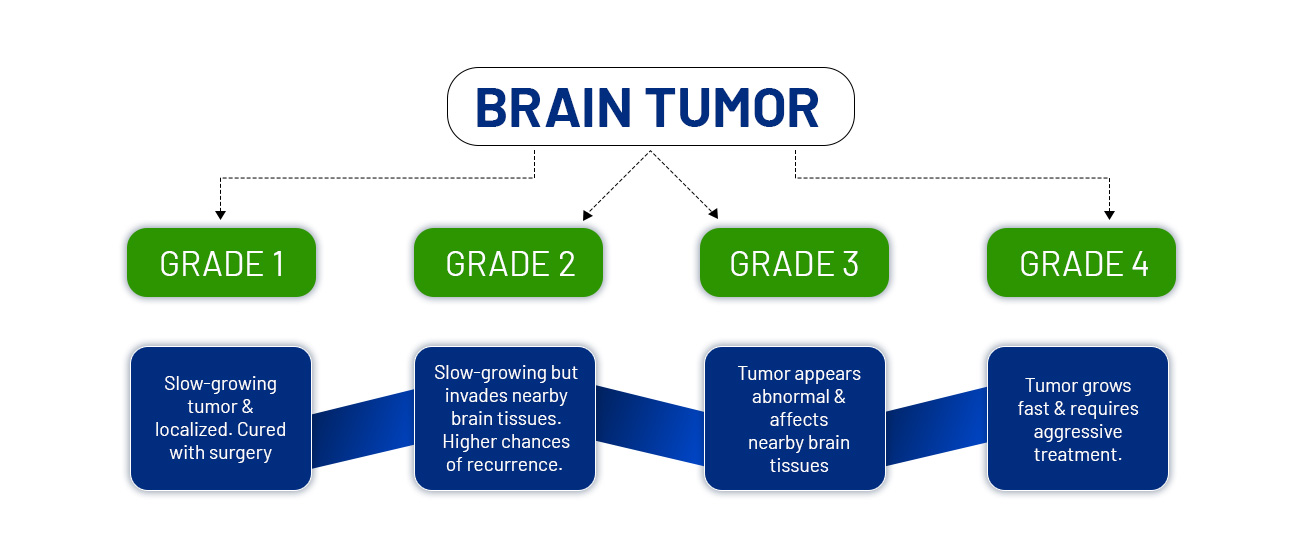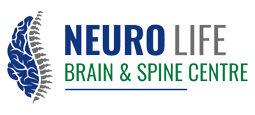
Brain Tumor
Brain Tumor Treatment in Ludhiana, Punjab, A brain Tumor is the growth of abnormal cells in the brain. As the skull has limited space, it will likely cause more trouble. Brain tumors can be cancerous and non-cancerous depending on the type, location, and all symptoms you have. When cancer has started to put excess pressure, it grows inside the skull, which is another issue. Such a situation is life-threatening as it tells that the damage is getting way more than expected. Dr. Amit Mittal is one of the known neurosurgeon in Punjab who can help you manage your condition in all the right ways. Under his expertise at the top-rated Neuro Spine Doctor in Punjab, personalized treatment will be given to you so that the problem is practical.
Every year in India 1 million cases are recorded for Brain Tumor which means prompt medical attention is needed.
What are the types of brain tumors?
Brain tumors are categorized into two types:
| Types of brain tumor | Description |
| Primary Brain Tumor | Primary brain tumors originate in the brain & such tumors develop from the nerve cells, glands, brain cells, and membranes which surround the brain. There are a number of tumor which can develop with gliomas like:
|
| Secondary brain tumors | Secondary brain tumors occur in the highest category and their growth is from one part of the body and then they begin to slowly spread in other parts of the brain. Some of its major culprits are:
|
Did you know?
There are some of the major risk factors of brain tumor-like:
- Age
- Family history
- Getting exposed to chemicals
- Radiation exposure
- Radiation exposure
- No such history of chickenpox
Being aware of the risk factors is essential to take all the necessary measures on time.
What are the significant signs and symptoms of the brain?
Brain tumor symptoms depend on the size and location of the tumor. Sometimes there might be direct damage to the brain tissues, and occasionally excess pressure is put on the nearby tissues present in the brain. As the tumor grows with time, extra pressure is likely to increase the severity of the symptoms. Headache is one of the significant symptoms as it is worse when you wake up in the morning, even when you are asleep, and gets worse with sneezing, coughing, & exercise.
Additional symptoms of brain tumor are:
- Vomiting
- Blurred vision or double vision
- Confusion
- Seizures (especially in adults)
- Weakness of a limb or part of the face
- A change in mental functioning
- Dizziness or vertigo
- Eye problems, such as drooping eyelids and unequal pupils
- Uncontrollable movements
- Numbness or tingling on one side of the body
- Changes in mood, personality, emotions, and behavior
- Difficulty walking
- Muscle weakness in the face, arm, or leg
What does a neurosurgeon do to diagnose brain tumors?
Diagnosis of a brain tumor is based on the physical examination & by checking the medical history. Moreover, a neurological exam is done, which helps to better look at the cranial nerves. The doctor will have a better look at the entire tumor as it even helps check whether some other factors cause the problem. Some of the factors which the doctor checks include:
- Coordination
- Memory
- Muscle strength
- Ability to do the mathematical calculations The necessary tests which are done include the:
- CT scan
- MRI
- Angiography
- Skull X-rays
- Biopsy
What are the treatment options for brain tumors?
For malignant tumors, surgery is the best choice as the aim is to remove cancer as much as possible so that the healthy part of the brain is not affected. The type of treatment for brain tumor you need will depend upon the following:
- The type of tumor
- The size of the tumor
- The location of the tumor
- Your overall well-being
Do you suspect you have a brain tumor?
Schedule your initial consultation with Dr. Amit Mittal to make a prompt decision if there is any problem with your brain health.


